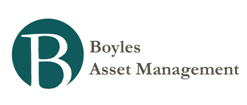Money and Finance
Broyhill on valuation, market cycles, and more (LINK)
Supply and Demand: Untangling the Market’s Greatest Mystery (LINK)
Jason Zweig: The Rise of Ultracheap Financial Advisers (LINK)
Bloomberg, Dalio Discuss Business Strategies (video) [H/T ValueWalk] (LINK)
Thomas Pritzker: multifaceted Hyatt chairman (LINK)
A Dozen Things Learned from Henry Ellenbogen (LINK)
Tim Harford: Crushing the competition – at any price (LINK)
- Ray Dalio On Cnbc
He's on with Ed Hess, author of Learn or Die, who did a long interview that Farnam Street posted yesterday, HERE. That book may have to move to the top of the to-read list. Links to videos and article: Totally honest with Ray Dalio (video) How...
- Asness, Bogle On Investment Strategy, Pension Funds
Link to video: Asness, Bogle on Investment Strategy, Pension Funds Sept. 22 (Bloomberg) -- Clifford Asness, managing and founding principal of AQR Capital Management, and John C. Bogle, founder of Vanguard Group Inc., talk about investment strategy, fund...
- Buffett, Blankfein, Bloomberg, Snyder: Small Businesses
Link to video: Buffett, Blankfein, Bloomberg, Snyder: Small Businesses Sept. 18 (Bloomberg) – Warren Buffett, the billionaire chairman of Berkshire Hathaway Inc., Lloyd Blankfein, chief executive officer of Goldman Sachs Group Inc., Michael Bloomberg,...
- James Grant On Bloomberg
Link to video: Grant Likes Gazprom, Says Challenges Will PassMay 5 (Bloomberg) -- James Grant, publisher of Grant's Interest Rate Observer, talks about the outlook for OAO Gazprom. Grant, speaking with Bloomberg's Stephanie Ruhle on the sidelines...
- Chanos, O'neill On Chinese Economy And Real Estate (video)
Found via ValueWalk. Sept. 24 (Bloomberg) -- Jim Chanos, founder of Kynikos Associates Ltd., and Jim O'Neill, former chairman of Goldman Sachs Asset Management, talk about China's economy, real estate and financial markets. They speak with Tom...
Money and Finance
Links
Broyhill on valuation, market cycles, and more (LINK)
Supply and Demand: Untangling the Market’s Greatest Mystery (LINK)
Jason Zweig: The Rise of Ultracheap Financial Advisers (LINK)
Bloomberg, Dalio Discuss Business Strategies (video) [H/T ValueWalk] (LINK)
Sept. 22 (Bloomberg) -- Michael Bloomberg, founder of Bloomberg LP and Bloomberg Philanthropies, and Ray Dalio, founder of Bridgewater Associates LP, talk about their business strategies and careers. Bloomberg's Stephanie Ruhle moderates the discussion at the Bloomberg Markets Most Influential Summit in New York. Bloomberg is also majority owner of Bloomberg LP, the parent company of Bloomberg News, and former mayor of New York City.Puerto Rico Pours On Tax Incentives For Investors [This is an older article, but Mohnish Pabrai mentioned at his annual meeting this weekend that he's setting up his insurance acquisition and investment vehicle, Dhandho Holdings, in Puerto Rico, largely because it will only have to pay 4% tax on investment income, so I thought it might be worth looking into.] (LINK)
Thomas Pritzker: multifaceted Hyatt chairman (LINK)
A Dozen Things Learned from Henry Ellenbogen (LINK)
Tim Harford: Crushing the competition – at any price (LINK)
Related book: The Everything Store: Jeff Bezos and the Age of AmazonTim Harford: How to see into the future (LINK)
Related book: The Undercover Economist Strikes Back60 Minutes started its new season last night (LINK)
Scott Pelley reports from the front lines in the fight against ISIS in northern Iraq, and con artists have been filing bogus tax returns and collecting millions. Steve Kroft finds out how far the scam has gone and why the IRS hasn't been able to stop it.Robert Sapolsky: Dude, Where’s My Frontal Cortex? (LINK)
Related previous post: Robert Sapolsky interview with NautilusThe Brain That Changes Itself (LINK)
Related book: The Brain That Changes ItselfHussman Weekly Market Comment: The Ponzi Economy (LINK)
The central point is this. The U.S. economy has shifted course from one of productive capital accumulation to a reliance on continuous expansion of debt in excess of the economic ability to repay it. Call this the Ponzi Economy.
The U.S. Ponzi Economy is one where domestic workers are underemployed and consume beyond their means; household and government debt make up the shortfall; corporate profits expand to a record share of GDP as revenues are sustained by household and government deficits; local employment is replaced by outsourced goods and labor; companies refrain from productive investment, accumulate the debt of other companies and issue new debt of their own, primarily to repurchase their own shares at escalating valuations; our trading partners (particularly China and Japan) become our largest creditors and accumulate trillions of dollars of claims that can effectively be traded for U.S. property and future output; Fed policy encourages the yield-seeking diversion of scarce savings toward speculation in risky securities; and as with every Ponzi scheme, everyone is happy as long as nobody seeks to be repaid.
- Ray Dalio On Cnbc
He's on with Ed Hess, author of Learn or Die, who did a long interview that Farnam Street posted yesterday, HERE. That book may have to move to the top of the to-read list. Links to videos and article: Totally honest with Ray Dalio (video) How...
- Asness, Bogle On Investment Strategy, Pension Funds
Link to video: Asness, Bogle on Investment Strategy, Pension Funds Sept. 22 (Bloomberg) -- Clifford Asness, managing and founding principal of AQR Capital Management, and John C. Bogle, founder of Vanguard Group Inc., talk about investment strategy, fund...
- Buffett, Blankfein, Bloomberg, Snyder: Small Businesses
Link to video: Buffett, Blankfein, Bloomberg, Snyder: Small Businesses Sept. 18 (Bloomberg) – Warren Buffett, the billionaire chairman of Berkshire Hathaway Inc., Lloyd Blankfein, chief executive officer of Goldman Sachs Group Inc., Michael Bloomberg,...
- James Grant On Bloomberg
Link to video: Grant Likes Gazprom, Says Challenges Will PassMay 5 (Bloomberg) -- James Grant, publisher of Grant's Interest Rate Observer, talks about the outlook for OAO Gazprom. Grant, speaking with Bloomberg's Stephanie Ruhle on the sidelines...
- Chanos, O'neill On Chinese Economy And Real Estate (video)
Found via ValueWalk. Sept. 24 (Bloomberg) -- Jim Chanos, founder of Kynikos Associates Ltd., and Jim O'Neill, former chairman of Goldman Sachs Asset Management, talk about China's economy, real estate and financial markets. They speak with Tom...

